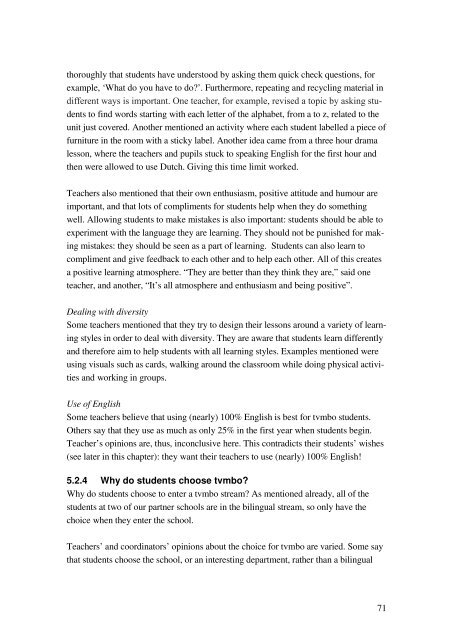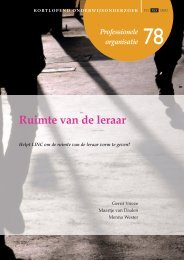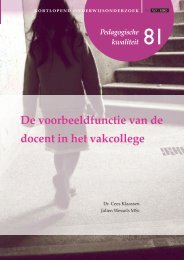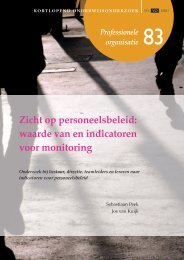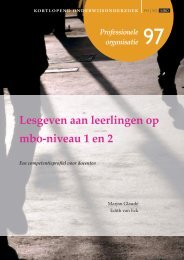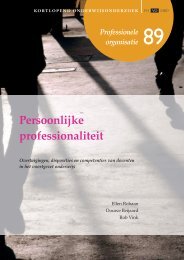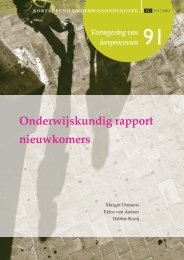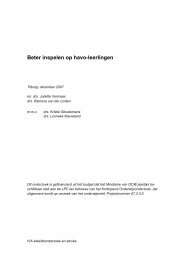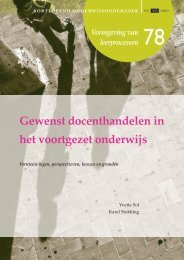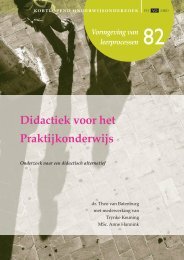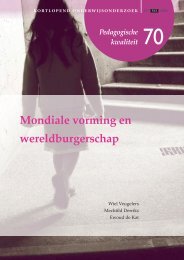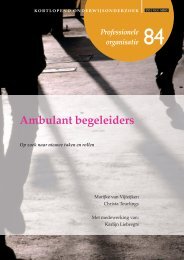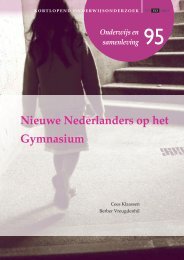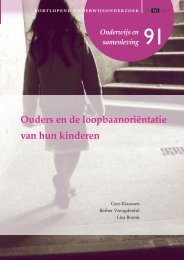Proud to be tvmbo - Kortlopend Onderwijsonderzoek
Proud to be tvmbo - Kortlopend Onderwijsonderzoek
Proud to be tvmbo - Kortlopend Onderwijsonderzoek
You also want an ePaper? Increase the reach of your titles
YUMPU automatically turns print PDFs into web optimized ePapers that Google loves.
thoroughly that students have unders<strong>to</strong>od by asking them quick check questions, for<br />
example, ‘What do you have <strong>to</strong> do?’. Furthermore, repeating and recycling material in<br />
different different ways is important. One teacher, for examplare example, revised revised a <strong>to</strong>pic by asking stustudents <strong>to</strong> find words starting with each letter of the alpha<strong>be</strong>t, from a <strong>to</strong> z, related <strong>to</strong> the<br />
unit just covered. Another mentioned an activity where each student la<strong>be</strong>lled a piece of<br />
furniture in the room with a sticky la<strong>be</strong>l. Another idea came from a three hour drama<br />
lesson, where the teachers and pupils stuck <strong>to</strong> speaking English for the first hour and<br />
then were allowed <strong>to</strong> use Dutch. Giving this time limit worked.<br />
Teachers also mentioned that their own enthusiasm, positive attitude and humour are<br />
important, and that lots of compliments for students help when they do something<br />
well. Allowing students <strong>to</strong> make mistakes is also important: students should <strong>be</strong> able <strong>to</strong><br />
experiment with the language they are learning. They should not <strong>be</strong> punished for making<br />
mistakes: they should <strong>be</strong> seen as a part of learning. Students can also learn <strong>to</strong><br />
compliment and give feedback <strong>to</strong> each other and <strong>to</strong> help each other. All of this creates<br />
a positive learning atmosphere. “They are <strong>be</strong>tter than they think they are,” said one<br />
teacher, and another, “It’s all atmosphere and enthusiasm and <strong>be</strong>ing positive”.<br />
Dealing with diversity<br />
Some teachers mentioned that they try <strong>to</strong> design their lessons around a variety of learning<br />
styles in order <strong>to</strong> deal with diversity. They are aware that students learn differently<br />
and therefore aim <strong>to</strong> help students with all learning styles. Examples mentioned were<br />
using visuals such as cards, walking around the classroom while doing physical activities<br />
and working in groups.<br />
Use of English<br />
Some teachers <strong>be</strong>lieve that using (nearly) 100% English is <strong>be</strong>st for <strong>tvmbo</strong> students.<br />
Others say that they use as much as only 25% in the first year when students <strong>be</strong>gin.<br />
Teacher’s opinions are, thus, inconclusive here. This contradicts their students’ wishes<br />
(see later in this chapter): they want their teachers <strong>to</strong> use (nearly) 100% English!<br />
5.2.4 Why do students choose <strong>tvmbo</strong>?<br />
Why do students choose <strong>to</strong> enter a <strong>tvmbo</strong> stream? As mentioned already, all of the<br />
students at two of our partner schools are in the bilingual stream, so only have the<br />
choice when they enter the school.<br />
Teachers’ and coordina<strong>to</strong>rs’ opinions about the choice for <strong>tvmbo</strong> are varied. Some say<br />
that students choose the school, or an interesting department, rather than a bilingual<br />
71


